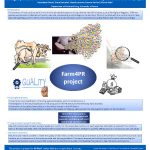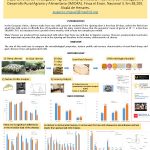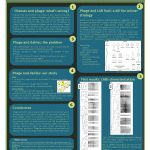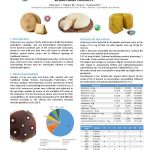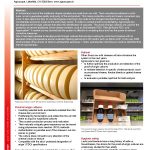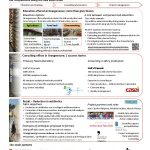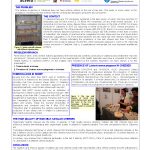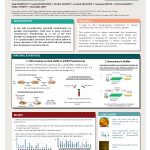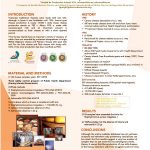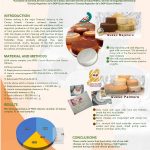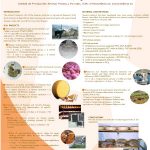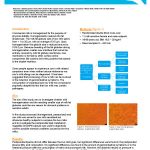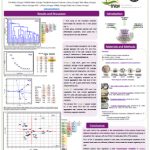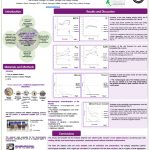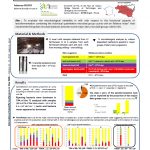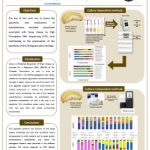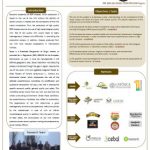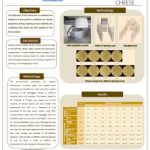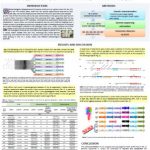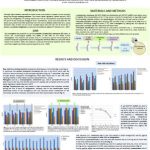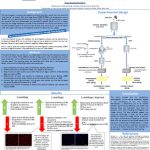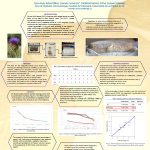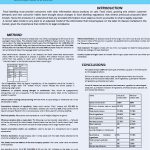The Scientific Committee received 36 posters and made a selection of 34.
The winers are:
- First prize: Picón, A., Contribution of autochthonus lactic acid bacteria to the typical flavour of raw goat milk cheeses.
- Second prize: Batelli, G., Raw milk microbiota modifications as affected by different cleaning procedures: The Trentingrana case.
- Third prize: Alveranga, N., Characterization of Serpa cheese microbiome by Next Generation Sequencing (NGS) as assurance of specificity.
Herein you will find the posters sent by the authors. Not all are available.
Posters
The abstract must be written in English and will be presented only for posters.
The main topic is “raw milk” with different subtopics (the two first are the main topics of the Conference):
- Raw milk ecology
- Raw milk and health
- Raw milk dairy products technology
- Food Safety
- Economy and social aspects related to raw milk
- Others matters related to raw milk do not included in the topics aforementioned
At least one author must be registered at the Conference before the abstract acceptation.
Each abstract will be submitted for international review procedure, according to which authors will be notified about any potential reviewers comments.
Please note that reviewers may reject submissions if the written product shows exceedingly poor grammar, scientific content, or structure.
From the first day of the Conference there will be available an area for you to hand up your poster.
Printing, transfer, setting and withdrawing of the poster is the authors’ responsibility.
ABSTRACT CONTENTS
The submitted abstract shall contain the following information:
Authors: full names and surnames of all authors (do not include professional titles), as well as other data requested during the submission process, such as Institutional affiliation, email addresses, etc.
Title: concise, 30 words maximum in sentence case letter. Please use only recognizable abbreviations.
Contents Abstract: text length in the abstract body (excluding title, authors’ details, keywords, etc.) shall not exceed 500 words. The following aspects must be included:
- Brief introduction
- Key words: 3 to 6 keywords, in alphabetic order, separated with commas
- Objective
- Methodology
- Main findings
- Conclusion
FORMAT AND ORIENTATION:
Poster size: 90x110cm
Portrait
ABSTRACT SUBMISSION
All abstracts shall be submitted through this online form.
Review carefully the work before submission.
If you encounter any difficulties during the submission process or for further information regarding abstract submission via website, please contact us by e-mail.
AWARDS
The three best posters will be awarded with a diploma. The Scientific Committee will sit as a jury.
KEY DATES
- Call for abstracts released: 13 June 2019
- Abstract submission deadline: by 4 October
- Notification of acceptance: by 13 October
The publication of selected abstracts in a special review, is under discussion.
A final book will be published at the end of the Conferences with the lectures and selected abstracts, adapted to a wide readership (both technical and non-technical) please contact us by e-mail.
Scientific Committee
The Scientific Committee is composed by the speakers and the following scientists.

Pro. Dr. Ana María Molina
PhD degree in Veterinary Medicine, School of Veterinary Medicine, University of Murcia (Cum Laude). Topic: Body Condition Score (BCS) in Manchega Sheep
At the Agricultural & Forestry Engineering School of University of Castilla-La Mancha:
- Full Professor of Animal Science
- Leader of the Food Quality Research Group
My research has been focused in the Ovine species, particularly in dairy breeds. Specifically the productive management in farms for the improvement of the hygienic-sanitary quality of milk: residues of veterinary drugs, toxins, and microbial contaminants, their detection and their effect on dairy products has been studied along these years of investigation.
A second line focus on the use of natural methods to combat the major defects of microbial origin in cheese.
Studies in milk from non-commercial species, such as deer (cervus elaphus hispanicus) milk: composition and technology of its potential dairy products, has been recently started.

Dr. Conrado Carrascosa
Soy Licenciado en Veterinaria por la Universidad de Las Palmas de GC y Licenciado en Ciencia y Tecnología de los Alimentos por la Universidad Politécnica de Valencia. Realicé mi tesis sobre las condiciones higiénicas de las queserías industriales y artesanales de Canarias. Desde mi ingreso como profesor Asociado a Tiempo Parcial en febrero de 2004 hasta la fecha, como Profesor Ayudante Doctor (marzo de 2017), he colaborado como investigador en el Control Higiénico Sanitario de las queserías y otros establecimientos alimentarios dentro del grupo de investigación de la OHAPA, adscrito al Área de conocimiento de Nutrición y Bromatología del Dpto. de Patología Animal de la Universidad de Las Palmas de GC. Desde el año 2005 hasta el 2012 obtuvimos 3 proyectos de colaboración con el Cabildo de Gran Canaria para el Control Higiénico Sanitario de las Queserías Artesanales de GC. Actualmente hemos desarrollado una línea de investigación sobre la aparición de pigmentaciones azules en quesos frescos de Canarias, producidos por Pseudomonas del grupo fluorescens, Esta alteración no había sido descrita anteriormente en quesos frescos y sí en Mozzarella.
He trabajado como técnico superior en el asesoramiento de planes de limpieza y desinfección en la industria alimentaria durante 17 años.
He presentado más de 70 comunicaciones a Congresos Científicos, en su mayoría internacionales y he publicado 24 artículos científicos en revistas con índice de impacto y 20 artículos en revistas sin índice de impacto.
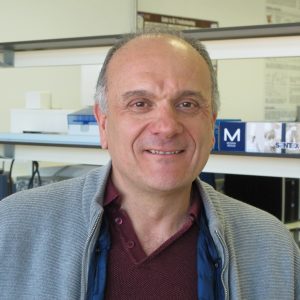
Prof. Luis Javier R. Barrón
Luis Javier R. Barron is a full professor at the Department of Pharmacy and Food Science at the University of the Basque Country (UPV/EHU) in Vitoria-Gasteiz (Spain). His teaching and research area is in the field of Food Technology, with special emphasis on Food Quality and Safety. Consequently, he lectures in several subjects connected with the degree in Food Science and Technology, and in several courses part of PhD programs as the Msc in Food Quality and Safety of the UPV/EHU. His extended research activity has focused on milk, cheese and meat quality, in particular from ovine, and safety being the principal investigator of the multidisciplinary research group named Lactiker (www.ehu.eus/lactiker). The Lactiker research group has participated in numerous projects funded by regional, national and European institutions. As a result of his research activity to date he has taken part in the publication of more than 80 articles in international scientific journals, in more than 30 events as invited lecturer, and in about 100 communications in national and international congresses.

Dr. Odón Sobrino
Degree and PhD in Veterinary Medicine (Food Hygiene and Technology), Veterinary School, Complutense University of Madrid.
As a civil servant, he has held various technical positions in the following areas:
- Evaluation and registration of veterinary medicines and representative of Spain in the Veterinary Medicines Committee of the European Medicines Agency.
- Evaluation and monitoring of the National Research Plan for residues in live animals and fresh meat (agriculture).
- Development of programs for the surveillance and control of zoonotic agents in primary production.
- Head of the Feed Hygiene Service. Responsible for the development of a research program for microbiological contamination of feedingstuffs. Implementation of feed hygiene regulations. Responsible for the development of the Spanish Royal Decree on Medicated Feedingstuffs. (MAPA). Member of the Standing Committee on the Food Chain and Animal Health. Section Animal nutrition.
- Head of the Environmental Impact of Livestock production Area.
- Spanish delegate in the EC working group on hormones.
- Spanish delegate in the Codex Alimentarius committee on residues of Veterinary Medicines in food.
27 scientific articles in the fields of Microbiology, Food Hygiene, Biotechnology, Animal Health and Environment.
He is member of SOCIVESC (Veterinarian Scientific Society on Community Public Health)

